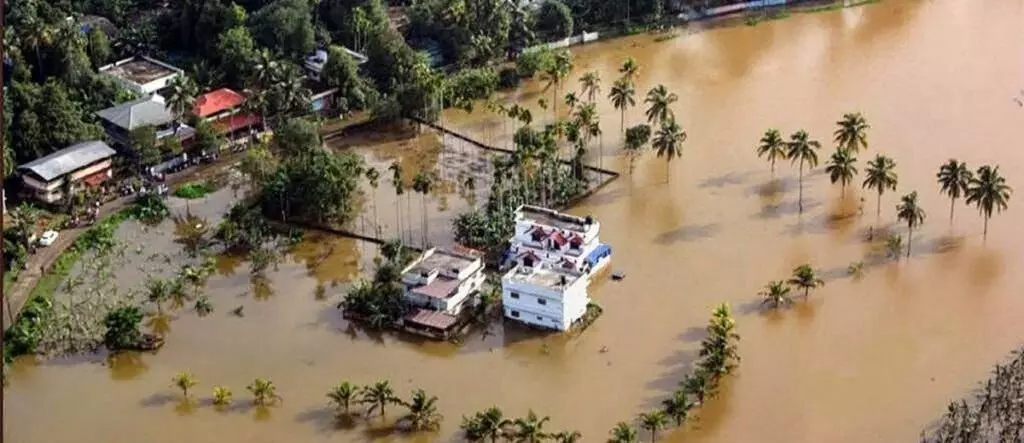
Extreme weather events will rise in India due to climate change: IIT study
text_fieldsPalaj: India is likely to see more extreme weather events like floods and heat waves due to climate change. A study held at IIT Gandhinagar has analysed the weather pattern from 1951 to 2020 and predicted that the subcontinent will see more heatwaves in the summer and extreme rainfall in the following monsoon season over the same regions.
Researchers cited this year's heatwave and flood in Pakistan as examples of sequential extremes. Similar patterns were spotted in India as well. This has large implications for agricultural production, public health, and infrastructure.
"The frequency of sequential extremes is projected to rise manifold in the future due to climate change. The fraction of the total population and urban area exposed to sequential extremes will increase rapidly if the global mean temperature rises above 1.5 degrees Celsius from the pre-industrial level," said Vimal Mishra, Professor of Civil Engineering and Earth Sciences at IIT Gandhinagar in Gujarat.
The warming climate is a major risk factor. The variability in the El Nino-Southern Oscillation (ENSO) is another risk factor contributing to the extreme weather. ENSO is the recurring climate pattern involving changes in the temperatures of waters in the central and eastern tropical Pacific Ocean.
The regions affected by the sequential extremes are significantly higher during the positive phase (El Nino) than the negative phase.
The study also warned that if the global mean temperature rises above 1.5 degrees Celsius from the pre-industrial level, the fraction of the total population and urban area exposed to sequential extremes will increase rapidly. "Median population exposure increases from 27% at 1.5 degrees Celsius to 36% and 45% at 3 and 4 degrees Celsius global warming levels, respectively."
Uttar Pradesh, Bihar, Jharkhand, Chhattisgarh, and Karnataka have a higher projected risk of sequential extremes than the other states.
India's large population is struggling to adapt to extreme weather events. Heat waves cause mortality and put pressure on public health infrastructure. Prolonged rainfall results in floods which affects agriculture and infrastructure. This can lead to loss of lives and human migration.























